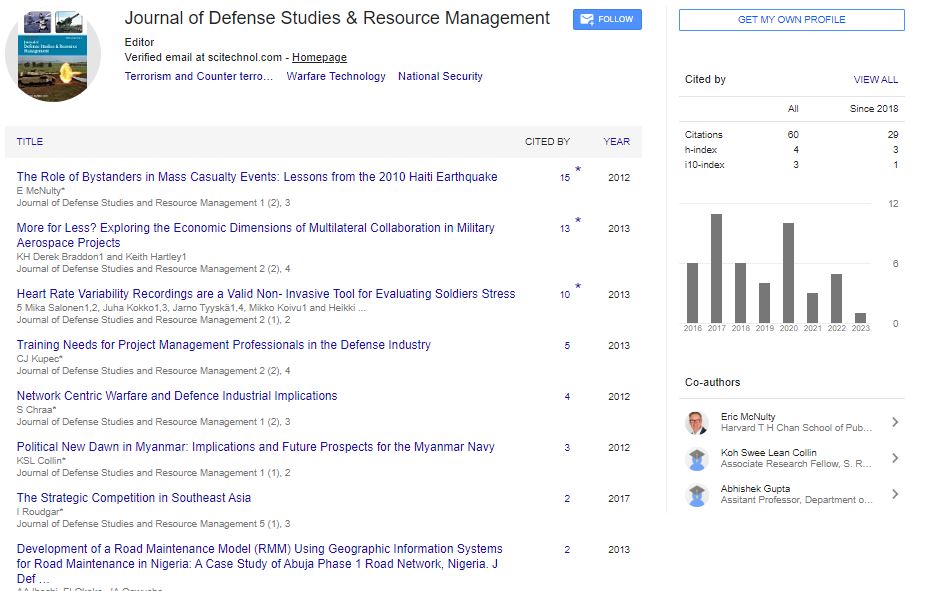Commentary, J Def Stud Resour Manage Vol: 9 Issue: 1
Brief Note on Characteristics of Political Economy Analysis
Smith*
Department of Political Sciences, Northwestern University, United States
*Corresponding Author: Smith Department of Political Sciences, Northwestern University, United States, E-Mail: smithmorie@uoc.uk
Received: 05 November, 2021; Accepted: 19 November, 2021; Published: 26 November, 2021
Introduction
Political economic analysis is defined as understanding the political dimensions of any context and using the knowledge diligently to inform policy and program. Politics is the formal and informal way in which competition or co-operation takes place in society. Political processes are flexible and occur at all levels of society. The Economic Political Analysis (PEA) aims to set out development interventions in understanding existing political and economic processes in society in particular motivation, relationships, and distribution and power competition between different groups and individuals. Political economic analysis can support political development strategies that are politically viable and thus more effective by setting realistic expectations of what can be achieved, over a certain amount of time, and the risks involved.
Political Economics is an interdisciplinary social science branch that focuses on interpersonal, governmental and social policy. Politicians study how economic ideologies such as capitalism, socialism, and communism work in the real world. At its root, any economic theory is an accepted means of directing the distribution of a limited number of resources in a way that benefits the most people. In a broad sense, the political economy was once a common term used in the sector we now call economics. The short term economics was replaced at the beginning of the 20th century by the development of robust statistical methods of analyzing economic factors.
The PEA can also help us identify areas for intelligent political intervention and many formal studies attempt to identify 'possible change mechanisms.' However, what could be a source of criticism for PEA, it is the tendency to use it as a 'do-it-yourself approach' and to introduce one part of the system management cycle (usually design) or to define a failure. PEA describes one way to avoid this problem by using a continuous `management 'approach to the effects of the political situation. PEA can therefore help and define the environment in which we operate, and it can enable us to function differently.
Elements of political economic analysis uses economic tools to assess political conditions. As in economics, an aspect of analyzing the political economy is the idea that individual (political) agents are self-seeking and rational. Economics examines how rational people use the resources they have (money, labor, land, etc.) to maximize a particular service (for example, to increase profits, income or expenditure) by producing goods and services and participating in markets. In a similar way, the political economy is examining how such people enhance their performance by participating in politics. They also have the money and the work (time) that can use to influence political processes to produce policy outcomes, that will benefit them (in particular, by renting them out).
Over the years, development organizations have developed various tools and methods for analyzing the political economy. To address this, recent methods have encouraged ‘problem-driven’ analysis that emphasizes the importance of operating and embedding political economic analysis in aid management processes, or ‘finding the right approach’. This means putting effort into identifying specific issues that are relevant to political analysis, and also in order to validate the findings of the political economy analysis is to inform policy decisions and programs.
Acknowledgement
None
Conflict of Interest
None
 Spanish
Spanish  Chinese
Chinese  Russian
Russian  German
German  French
French  Japanese
Japanese  Portuguese
Portuguese  Hindi
Hindi 